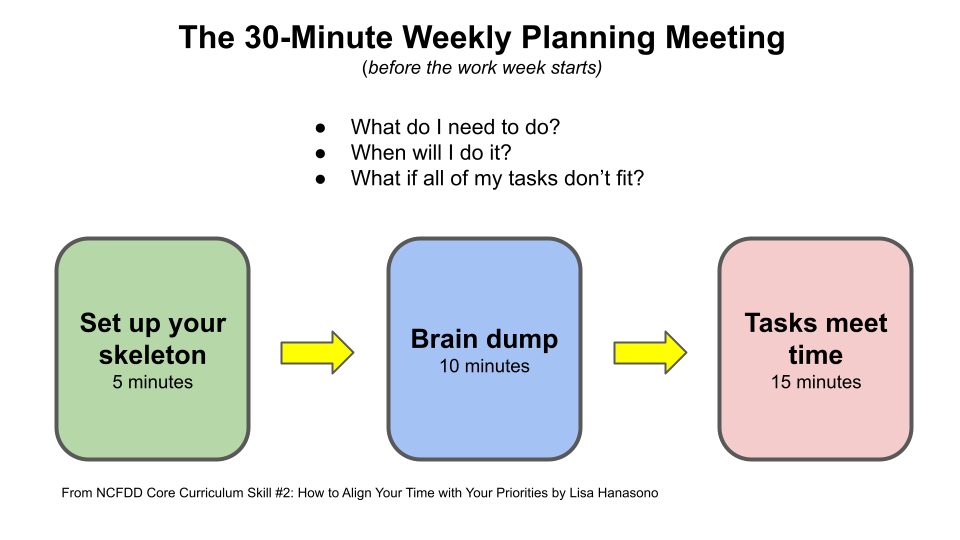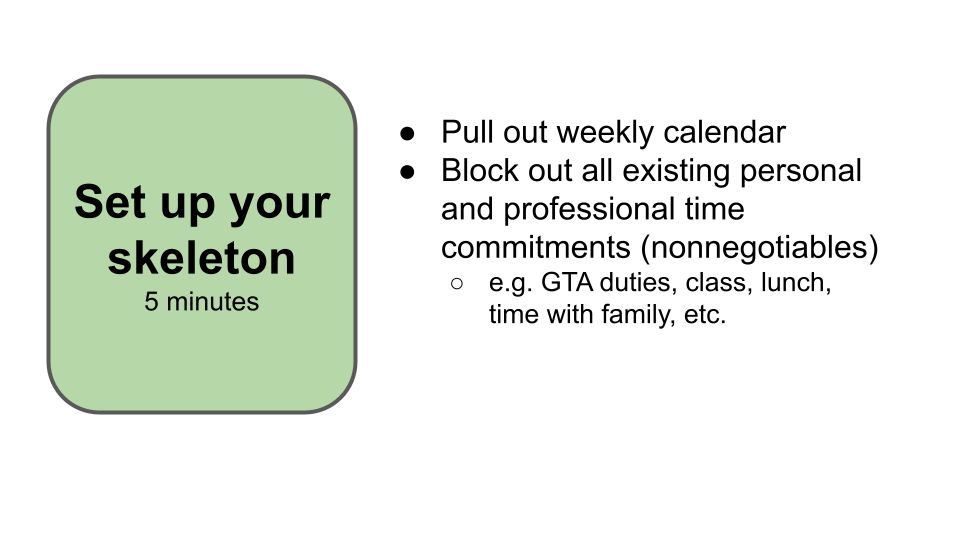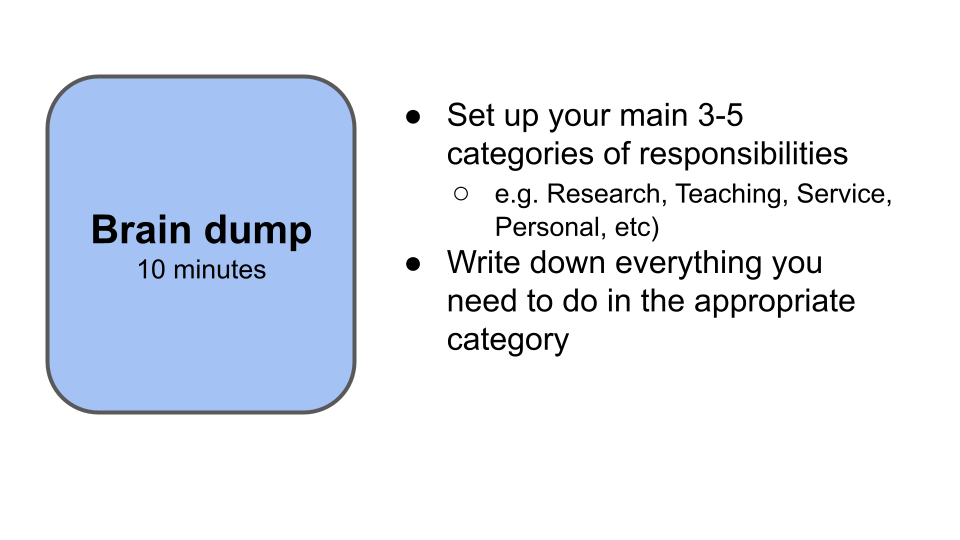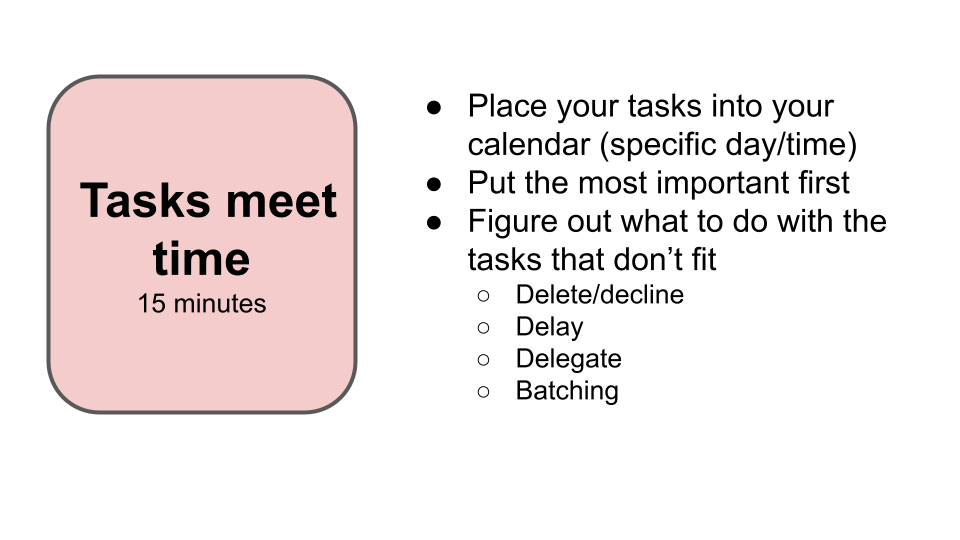Our first SGTA seminar centered on setting SMART goals for a successful year. The SMART framework provides a basis for reframing personal goals so that they are Specific, Measurable, Achievable, Relevant, and Time-bound. This framing helps us set goals that are more likely to be accomplished. See last year’s blog post for more information on the SMART framework.
This Fall, we shared a few “fresh” ideas in our SGTA seminar that added onto the material shared in our previous blogpost. We’ll recap those below!
The Power of a Weekly Planning Meeting
Graduate students face a unique challenge: we have a lot of work to do, but we usually don’t have a day-to-day “supervisor” who directs this work. And, although we have advisors, we must self regulate and essentially “be our own boss” most of the time. To be successful, we must learn how to prioritize, plan, and balance coursework, teaching, research, professional development, and personal well-being. Being intentional and systematic about how we schedule our time can go a long way in helping us manage our workload. This is especially important when planning to meet long-term deadlines–like writing a dissertation!
A good strategy for staying organized is to hold a personal “weekly planning meeting.” This should be a regularly-scheduled time set aside specifically to review the last week and to prepare for the new one. It important to have this meeting before your week starts. Some people prefer to plan on Friday before going home for the weekend. Others prefer to do this on Sunday. During this meeting, you can make note of the status of ongoing projects and responsibilities, review any important calendar items, and (most importantly) create to-do lists for the week.




Inevitably, not all of your tasks will fit into your week. That’s okay and completely normal! As shown in the image above, there are various ways to handle this: delete, delay, delegate, or batch your tasks. So… what is batching? Do you have, for example, a bunch of different clerical tasks like: call your doctor, respond to emails, fill out paperwork? These can be “batched” together into a single task time, e.g. “On Monday from 9:30-10am I will complete my clerical tasks.” Each task does not need it’s own slot on your calendar.
The above ideas are shared from NCFDD Core Curriculum Skill #2: How to Align Your Time with Your Priorities by Lisa Hanasono. See also this blog post for more ideas about weekly planning systems.
Matching Your Priorities to Your Needs
Graduate school is a time of rapid change. Students begin with a focus on coursework and exploration, and eventually transition to focused research. During this transition, priorities may need to change as well. Students who are early in their studies benefit from prioritizing exposure to a variety of topics, and from maximizing the time spent trying to improve their core knowledge and skills. This means they might set aside time to attend seminars or reading groups that cover a wide variety of topics. A student who is further along in their studies may need to prioritize deep and focused attention on a more narrow set of topics.
Overall, you should seek to identify what your actual present needs are, and to set your goals accordingly. Nobody has access to infinite time, and it is important to decide what not to prioritize, so that the things which matter most can receive enough attention.

